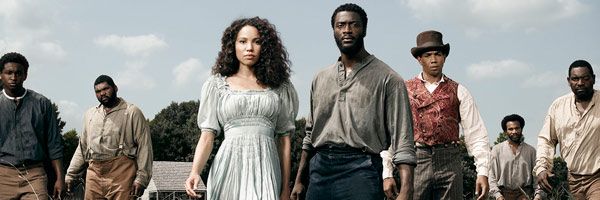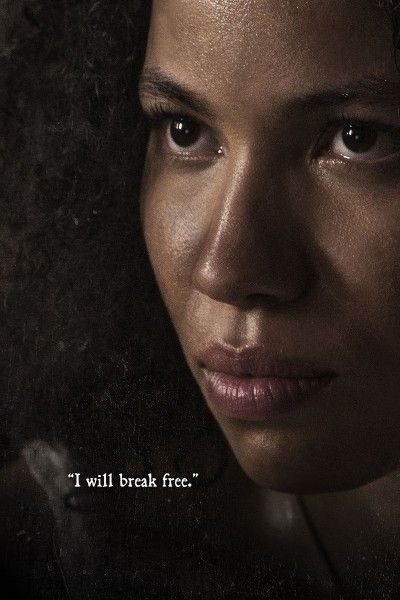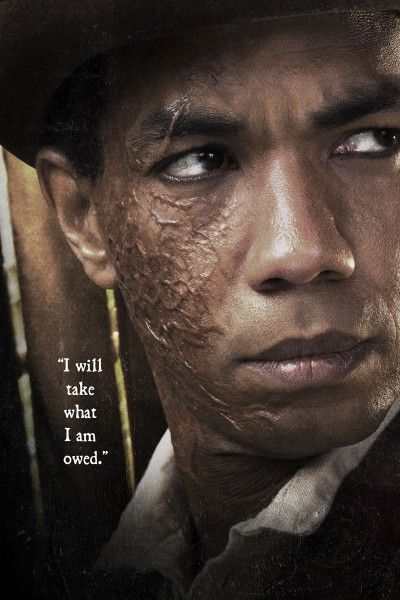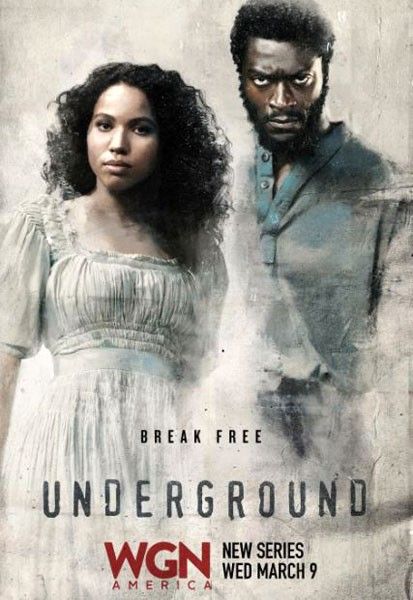From executive producer John Legend, WGN America’s Underground tells the always intense and often heartbreaking story of some of the revolutionaries of the Underground Railroad, who use their ingenuity, power and perseverance to attempt the greatest escape in history despite the dire consequences that await them on the other side. The original series focuses on a group of men and women who band together for the fight of their lives, their families, their future and their freedom, and that life-and-death struggle demands great sacrifices and great courage that they may not be able to find within themselves. The show stars Aldis Hodge, Jurnee Smollett-Bell, Christopher Meloni, Alano Miller, Jessica De Gouw, Marc Blucas, Mykelti Williamson, Adina Porter, Amirah Vann, Renwick Scott, Johnny Ray Gill and Theodus Crane.
During this exclusive interview with Collider, executive producer Akiva Goldsman (Fringe) talked about the modern storytelling they’re using for this historical tale, the show’s effective use of music, the weight of telling a story like this, the cinematic look and feel, showing this experience through a genre lens, that you’ll know what happens to these characters by the end of the season, and why a writers’ collective can benefit a project, whether it be film or TV.
Collider: This is an interesting story that explores our history in a very modern way. Was that something that you intentionally wanted to do with this show?
AKIVA GOLDSMAN: Fundamentally, the storytelling is modern. How we moved forward was really structured on reversals. When you read the scripts and the characters turn out to be something unexpected, you realize that your assumptions were wrong. That was declarative. This storytelling will actually knock you down sometimes and it will reverse what you’re thinking in a way that makes it interesting. The truth of the time is horrific and profound and, therefore, full of unparalleled courage. It’s the kind of stuff that we think only exists in genre movies. We build prison planets to express, in contemporary vernacular, what those human beings have to go through. It’s the history of our country and we don’t remember it. We also try to get under what we think are stereotypes that developed over time. It’s not true that only a minority of those who were enslaved had the wherewithal to escape. Like with all cultures, and I’m a Jew, when you’re subjugated, it’s hard to get out. There seems to be no room, and there seems to be no avenue. We want to dismiss the, “And then, the white people save you,” thing. The storytelling is new and the truth of it is dramatic, so that combination seems to make it relevant.
This show makes such effective use of music. Why was that important?
GOLDSMAN: That was something that (show creators) Joe [Pokaski] and Misha [Green] had as part of the conceptual construct, from the beginning. It was really important, for all the real, true, heart reasons, as well as the opportunistic entertainment reasons, for this not to be a history show. The idea of starting with that Kanye [West] song is declarative. It says, “This is the kind of story we’re telling.” We’re talking about modern storytelling. It’s a juxtaposition of form, which is new and modern and, therefore, relevant. I think the music is crucial to that.
When you’re telling such an important story, does it feel like there’s more weight to it while you’re making it?
GOLDSMAN: As you always discover when you make something, typically if your object isn’t frivolous, people’s relationship to it isn’t frivolous. Anything you make has its own wavelength and its own sound. It’s like a tuning fork, until the things that resonate are correct for it. So, Joe and Misha managed to find a place to shoot that nobody really has ever been able to shoot, and certainly not about this. That made it real and authentic. I think the actors responded to the authenticity and the emotion and pathos of the narrative. So, you have people that care. It is a unique assembly. It is similar, in some ways, to A Beautiful Mind, in that people cared and came to it for a reason that mattered. That’s not better or worse, but it’s just a different way of approaching a project than one might approach something more casual.
Was the cinematic look and feel of this show also part of the appeal for you?
GOLDSMAN: I have now become so infatuated with television. I think television has become elegant. My only other time with TV was Fringe, and we were doing storytelling that was fun. We enjoyed it, but Fringe was not particularly cinematic. This has a scope that we used to think of for features, but we don’t anymore. Post-True Detective, the two worlds have hybridized.
This is a very high stakes story, very quickly. Will the tension keep building?
GOLDSMAN: Yes, and we did that with genre in mind. There’s no question that we wanted to see this experience through a genre lens. We are genre makers. It has importance to me. A Beautiful Mind was a genre movie with a mental health movie hiding inside of it. Joe and Misha met on Heroes. We’re all very serious people who happen to love genre, so therefore, the lens of this is to keep people engaged. If we don’t keep people engaged, we’re not going to move you. And if we move you, we’ve done something useful. That’s what anybody who writes genre knows. People who don’t understand genre don’t know that. We have to actually keep you so engaged that we can give you an idea that you don’t even understand and give you time to process it. Nothing against typical drama, but you don’t have to do that.
Will we know what happens to this set of characters, by the end of this season?
GOLDSMAN: Yes. I hope it isn’t one season, but if it is, it’s built to be a thoroughly satisfying experience. It’s also built to have Season 2, 3, 4 and 5. Without giving anything away, as much as I love American Horror Story, this is not that. Season 2 won’t be about another group that runs. What’s really interesting is that the historical content of those times changes very fast, in the exact period that we’re in. We won’t go back in time for Season 2. The culture is changing, at that moment. I can tell you that we’re not killing everybody. We’ll start to drive towards the Civil War, historically. Joe and Misha have thought it out. The idea is to go, “What if you made it? What would you do then? What if you were left behind?”
You’ve been a part of a writers’ room for the Transformers franchise, much like the way a TV show is approached. What advantage does a brainstorming process like that give you?
GOLDSMAN: I think people underestimate the value of collaboration, especially for writers. I learned that from J.J. Abrams and Jeff Pinkner. I said, “I really want to direct a Fringe episode.” And JJ said, “Fine, write it.” I said, “I don’t want to write it.” And he said, “No, you have to write it.” I had no idea how to write a TV show, and I literally wrote 13 outlines. I couldn’t get the acts right, and Jeff was compassionate and kept sending them back to me. What happens is that the experience of writers working together and the idea of creative collaboration is so delightful, but it has been relegated to TV. As television is learning some of the movies’ great tricks, movies are taking what’s good from TV. Maybe it will all become one big thing, with smart, talented people who love a thing, helping each other be better. Having said that, I think there are objects that are singular, and those are fine, too. Sometimes you see auteur TV shows and movies, and those are great, too. Let there be a wide breadth of possible ways to create.
Underground airs on Wednesday nights on WGN America.




